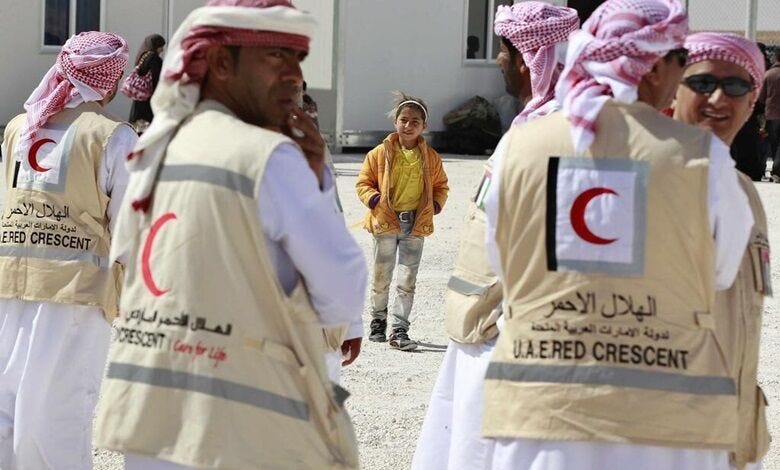The United Arab Emirates (UAE) has become a global leader in humanitarian efforts, driven by its founder, Sheikh Zayed bin Sultan Al Nahyan. His visionary approach laid the foundation for the country’s humanitarian leadership, which includes democracy, putting people first, education and healthcare, emancipation of women, trade and environment, tolerance and generosity, and being revered as the Waalid al-Ummah (Father of the Nation).

The UAE’s rapid response to crises is often the first international aid to reach affected regions. The UN immediately issues a global appeal for aid, mobilizing resources to provide urgent assistance and ensure no one is left behind. The UAE’s International Humanitarian City (IHC) hosts multiple warehouses and storage facilities for UN agencies, facilitating humanitarian air bridges.
During the devastating earthquakes in Türkiye and Syria, the UAE was one of the first countries to support global humanitarian initiatives, sending 2,154 tons of medical aid, ventilators, screening equipment, personal protection gear, and testing kits to 135 countries. The UN provided in-kind aid worth USD 10 million to the World Health Organization (WHO). The Fund of the United Arab Emirates: Homeland of Humanity unifies national efforts to combat COVID-19, with individuals and organizations contributing in cash or kind through Emirates Red Crescent and other charities across the UAE.
The UAE extends its humanitarian efforts beyond its borders, with a particular focus on Arab countries facing natural disasters and wars. The UAE’s leadership has institutionalized “humanitarian diplomacy” as part of its foreign policy, with initiatives such as the Office of Public and Cultural Diplomacy and the Soft Power Council.
The UAE continues to strengthen its humanitarian leadership, consolidating its global position as a capital of goodness and humanitarian work. Its unlimited and continuous efforts in providing aid to various countries underscore its commitment to compassion and solidarity.
Comments
Post a Comment